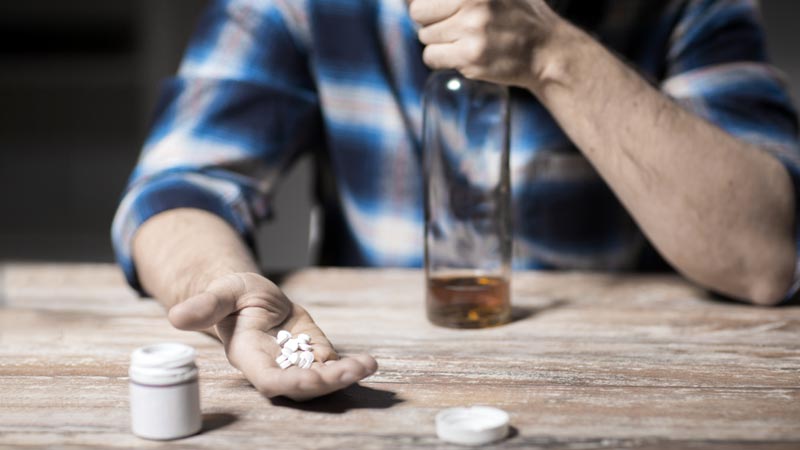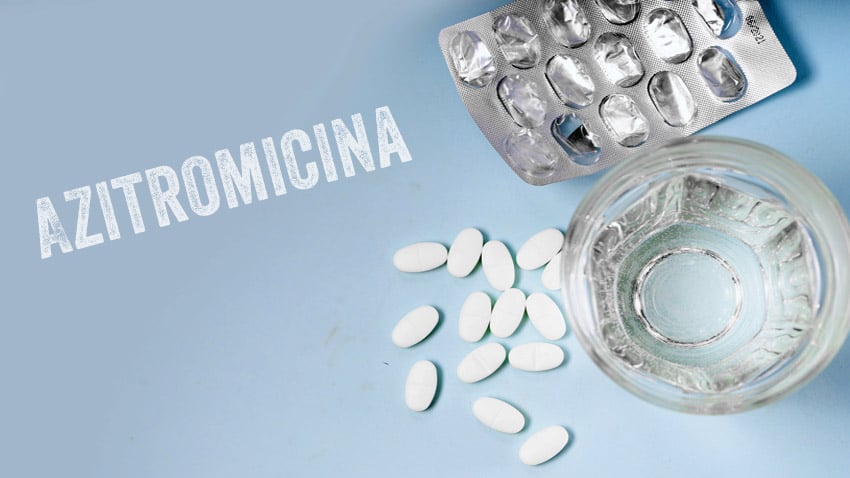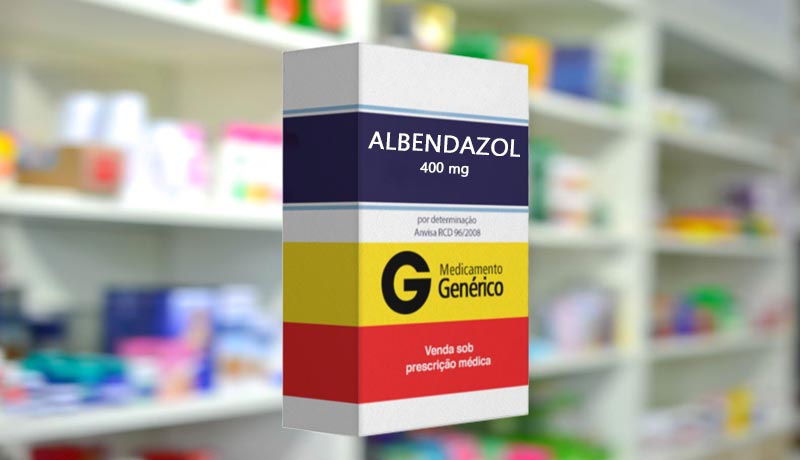Can I drink if I am taking antibiotics?
Everyone has heard that you shouldn’t drink alcohol if you’re taking an antibiotic. Reasons for avoiding this combination include loss of antibiotic effectiveness, increased toxicity of alcohol, occurrence of side effects, and even an increased risk of liver damage.
A simple Google search using the terms “alcoholic beverages and antibiotics” leads to dozens of websites preaching total abstinence from alcohol for patients undergoing antibiotic treatment. Many of these sites quote doctors and offer supposedly scientific explanations for the risk of this association.
Unfortunately, the Internet is full of pseudoscientific articles that may seem well-founded to the layman, but lack the minimum scientific evidence to defend their positions.
In light of current scientific knowledge, there is no single answer to the question: “Can people taking antibiotics drink?
To answer this question correctly, we need to know which antibiotic is being taken, what infection is being treated, what the patient’s clinical condition is, and how much alcohol the individual plans to drink.
To summarize everything explained in this article in just one sentence, we can say that for most patients and most classes of antibiotics, there is no problem with drinking alcohol in moderation while taking antibiotics.
Why mixing alcohol and antibiotics might not be good?
Moderate and occasional amounts of alcohol, such as the social consumption of two glasses of wine or two cans of beer (or a shot of hard liquor), do not interfere with the effects of most antibiotics. In fact, even higher doses of alcohol usually don’t reduce the effect of the antibiotic. The issue, as we’ll see below, is the side effects and the effect of alcohol on the immune system.
Basically, the idea that total abstinence is necessary during antibiotic treatment is a myth. This is not an opinion; the British Medical Association (BMA) does not impose any restrictions on the association of alcohol with most antibiotics (the exceptions will be explained later).
The intriguing aspect is that this misconception prevails notably among health professionals. A study conducted in Britain revealed that as many as 76% of the surveyed doctors opined that the combination of alcohol and antibiotics should be strictly prohibited in all instances, without any exception.
It is important to note, however, that even though most antibiotics are not contraindicated for use with alcoholic beverages, doing so, especially in high doses, is not without consequences.
Alcohol is a very irritating substance for the gastrointestinal mucosa, and since some common antibiotics, such as amoxicillin, nitrofurantoin, and azithromycin, often cause nausea, vomiting, abdominal pain, or diarrhea, mixing high doses of alcohol with antibiotics is not recommended, as it may potentiate these adverse effects. If you are sick and taking antibiotics, alcohol is much more likely to cause adverse effects.
It’s important to consider that patients who require antibiotics are typically those who have an infection and thus require a strong immune system to fight it. While having one or two beers may not significantly impact the body’s ability to combat the infection, excessive alcohol consumption may interfere with the immune system, making it more challenging to cure the disease.
Another point to note is that alcohol is a substance metabolized in the liver by the same enzymatic pathways that metabolize some antibiotics. Excessive and repeated alcohol consumption can keep the liver “busy” processing the excess alcohol, causing the antibiotic not to be metabolized properly. This can lead not only to a reduction in the effectiveness of antibiotics, but also to the accumulation of toxic antibiotic metabolites, increasing the incidence of side effects.
In short, you can have your usual beer or glass of wine with a meal, even if you’re on antibiotic treatment. However, if you are ill, it is wise to avoid alcohol, smoking, excessive physical exertion, poor diet, sleeping only a few hours a night, and excessive exposure to sunlight. In most cases, there is no formal contraindication; it’s just a matter of common sense.
Antibiotics contraindicated with alcohol
Although the combination of alcohol and antibiotics is safe in most cases, there are important exceptions. Some classes of antibiotics can interact significantly with even low doses of alcohol. Others, such as metronidazole and tinidazole, can cause serious side effects known as the disulfiram effect (we’ll explain what this effect is in a bit).
So if you’re feeling well, have a party planned for the weekend, want to drink responsibly, but are in the final stages of antibiotic treatment, your best option is to find out if your antibiotic is in the small group of drugs that contraindicate drinking.
The antibiotics that absolutely cannot be mixed with alcohol are those that can cause the disulfiram effect. These include:
- Metronidazole.
- Isoniazid.
- Tinidazole.
- Some antibiotics in the cephalosporin class:
- Ceftriaxone.
- Cefotetan.
- Cefoperazone.
- Cefamandol.
- Cefmetazole.
Even metronidazole or tinidazole vaginal cream can cause a disulfiram effect. It’s critical to note that many popular gynecological creams may contain 2 or 3 different ingredients, including metronidazole or tinidazole.
To avoid the disulfiram effect, the patient must be off the antibiotics for at least 72 hours before consuming alcoholic beverages.
Rarely, the antibiotic sulfamethoxazole + trimethoprim, known by the brand name Bactrim®, can also cause a disulfiram effect. In general, this only occurs if the patient consumes a large amount of alcoholic beverages. However, because some organisms may be more sensitive than others, you should avoid alcoholic drinks if you are taking Bactrim® to be on the safe side.
In addition to antibiotics, other drugs used to treat infections, such as antivirals, antiparasitics, and antifungals, can cause side effects when mixed with alcohol. The most important of these are:
- Griseofulvin (antifungal): may cause a disulfiram effect.
- Voriconazole (antifungal): interferes with antifungal effects.
- Ketoconazole (antifungal): increased risk of liver damage.
- Fluconazole (antifungal): increased risk of liver damage.
- Didanosine (antiretroviral): increased risk of pancreatitis.
Other side effects of combining alcohol and antibiotics
The antibiotics listed above are the ones that can cause the most severe reactions when taken with alcohol. However, several other antibiotics can cause other types of reactions and should also be avoided in combination with alcoholic beverages. These include:
- Linezolid: may cause a hypertensive crisis if taken with tyrosine-rich alcoholic beverages, such as beer or red wine.
- Isoniazid, rifampicin, or pyrazinamide: these medications have an increased risk of hepatotoxicity (liver damage), so frequent use of alcohol should be discouraged.
- Erythromycin or doxycycline: alcohol may decrease the effectiveness of these antibiotics. Erythromycin can also speed up the emptying of the stomach, causing alcohol to be absorbed more quickly, leading to higher blood alcohol levels.
What is the disulfiram effect?
Disulfiram, sold commercially under the name Antabuse®, is a substance used to treat alcoholism. Disulfiram prevents the liver from eliminating alcohol’s most toxic metabolites, such as acetaldehyde, which is one of the substances responsible for the hangover symptoms that occur in people who drink too much.
Because disulfiram prevents the liver from metabolizing the acetaldehyde produced by alcohol, its blood level can be up to 1000% higher. When patients taking disulfiram drink alcohol, even in small doses, they quickly become intoxicated and feel the side effects of the treatment, which are similar to a colossal hangover, with vomiting, palpitations, heat, excessive sweating, difficulty breathing, intense headaches and a drop in blood pressure.
The individual feels very uncomfortable, as if they were on the verge of collapse, so they can’t continue drinking. If the patient insists on drinking alcohol despite feeling unwell, the drug can lead to coma or death.
The antibiotics mentioned in the previous topic, especially metronidazole and tinidazole, can cause a similar effect to disulfiram. Therefore, alcohol consumption should be strongly discouraged during the 24 hours preceding the start of treatment until 72 hours after the end of antibiotic treatment.
Antibiotics that allow moderate alcohol consumption
So far, we have listed 15 antibiotics that should not be mixed with alcohol. If you are taking an antibiotic that is not listed above, there is no scientific evidence against moderate alcohol consumption during treatment.
More specifically, there is no formal contraindication to drinking alcohol in small amounts for those taking Ciprofloxacin, Levofloxacin, Penicillin, Cephalexin, or other common antibiotics.
However, it should be noted that although it is not contraindicated, mixing alcohol with some commonly prescribed antibiotics, such as azithromycin, amoxicillin (with or without Clavulanic acid), Ciprofloxacin, Levofloxacin, or Nitrofurantoin, increases the risk of side effects, especially gastrointestinal ones.
Clinical situations that should discourage mixing alcoholic drinks with antibiotics
As we discussed at the beginning of the text, the fact that there are no formal contraindications to the use of alcohol with certain types of antibiotics does not mean that this association is entirely safe. Remember, the patient undergoing antibiotic treatment is ill, and abusing alcohol will do them no good.
If the patient has a serious or potentially serious infection, it’s obvious that alcohol consumption should be avoided, even if the drink has no direct interaction with the antibiotic being taken. The issue is not the antibiotic itself, but the disease. The same reasoning applies to patients with liver problems, even temporary ones, as the combination of alcohol and antibiotics can increase the hepatotoxicity of both.
Studies show that patients being treated for sexually transmitted diseases (STDs) are at greater risk of having unprotected sex before the end of the antibiotic course (i.e., before they are cured) if they consume alcoholic beverages. This behavior puts others at risk and encourages the spread of STDs. For this reason, all STD patients undergoing treatment should avoid drinking alcohol.
Conclusion
In order to organize all the information in the text, we will summarize which antibiotics should not be taken with alcoholic beverages, either because of serious adverse effects, such as the disulfiram effect or liver damage, or because of interference with the effectiveness of the antibiotic.
You should not drink alcohol if you are taking the following antibiotics or antimicrobials:
- Metronidazole.
- Tinidazole.
- Ceftriaxone.
- Cefotetan.
- Cefoperazone.
- Cefamandol.
- Cefmetazol.
- Cetoconazole.
- Griseofulvin.
- Voriconazole.
- Didanosine.
- Linezolid.
- Isoniazid.
- Ethambutol.
- Rifampicin.
- Pyrazinamide.
- Erythromycin.
- Doxycycline.
References
- Alcohol alert: Alcohol-medication interactions – National Institute on Alcohol Abuse and Alcoholism.
- Alcohol and Medication Interactions – Alcohol Research & Health.
- Can I drink alcohol while taking antibiotics? – NHS.
- Do ethanol and metronidazole interact to produce a disulfiram-like reaction? – The Annals of pharmacotherapy.
- Harmful Interactions – National Institute on Alcohol Abuse and Alcoholism.
- Fact versus Fiction: a Review of the Evidence behind Alcohol and Antibiotic Interactions – American Society for Microbiology.
Author(s)
Médico graduado pela Universidade Federal do Rio de Janeiro (UFRJ), com títulos de especialista em Medicina Interna e Nefrologia pela Universidade Estadual do Rio de Janeiro (UERJ), Sociedade Brasileira de Nefrologia (SBN), Universidade do Porto e pelo Colégio de Especialidade de Nefrologia de Portugal.




